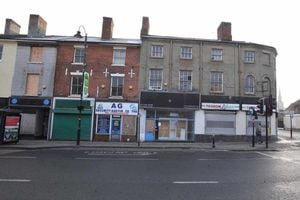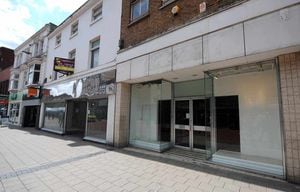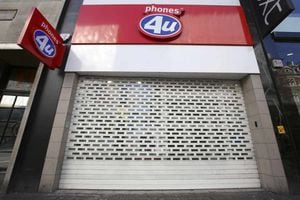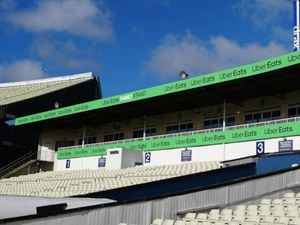High street losing more shops, study reveals
High streets across the region are emptying at a faster rate, as the number of shop closures far outstrips store openings, a new report reveals today.

The gulf between openings and closures is getting bigger, with the region losing more stores in the first six months of this year than in the whole of 2013.
Across the West Midlands three shops closed every two days over the first six months – and that was before the collapse of La Senza and Phones 4u.
In all, 265 stores closed across the region but only 198 opened - a net loss of 67 shops. The region only lost 64 in the whole of last year. Building society branches, clothing chains and mobile phone shops were the big losers. But bookies and coffee shops are still on the rise, along with pound shops, charity shops and convenience stores, snapping up empty premises.
Nationwide, research from accountants PwC and the Local Data Company (LDC) found that, from a peak of more than 20 store closures a day in 2012 and 18 per day in the first half of last year, the rate of closures fell to 16 a day in the first six months of this year.
What can be done to save our high streets? Have your say in the comments below.
But a study of 500 town centres across Great Britain shows that 3,003 outlets closed in a six-month period compared to 2,597 openings, a net reduction of 406 shops over six months – more than in the whole of last year.

And over the next three months, to the end of September, the overall drop rose to 964 - due to the loss of La Senza and Phones 4u.
One of the worst hit areas of the region is Wolverhampton, where 19 shops closed in the already hard-hit city centre, and only seven opened. The overall loss of a dozen shops in six months was the worst of any shopping centre in the region.
In Walsall, 11 shops closed and only five opened, while in Dudley nine closed and just three opened. Kidderminster lost 12 shops and six were opened.
West Bromwich doesn't make the list of top 500 shopping centres, although it has benefited from the opening of the New Square retail development in the town centre a year ago which could see it appearing in future lists.

In Stafford, four shops closed and just one opened, while in Cannock eight were closed for a gain of just three new stores.
Birmingham, benefitting from the popularity of the Bullring, saw 40 stores close but 39 open.
Matthew Hopkinson, director of LDC, said: "This analysis of openings and closures in the top 500 town centres shows that significant changes are continuing to take place across Britain's town centres.
"Multiple retailers are continuing to close stores on high streets in favour of retail parks and shopping centres. The bad news is that the significant decline in chain retailer numbers in town centres seen in 2012, which then slowed in 2013, has picked up again with net closures of 406 stores in the first half of the year which is already more than the total for 2013."
Rob Hunt, a partner at PwC in the Midlands, said: "I expect to see multiple retailers continue to approach openings in town centres very cautiously. This is likely to mean shorter-term leases and more temporary pop up type formats particularly in secondary locations.
"The overall drop in store openings may look surprising given UK growth prospects but at a macro level, it is most influenced by shifts in retail business models from purely high street to multi-channel. The expanders are still the charity shops, the discount stores and supermarket convenience outlets.
"The fallers reflect a spectrum of cases such as Albemarle & Bond where the estate had to be reduced to restore viability through to Blockbuster where the chain's raison d'etre has become obsolete due to technology, which also continues to impact retail service businesses such as travel agents. The fashion sector is also on the back foot, due to too many similar formats and online trends."
LDC's Mr Hopkinson added: "Traditional shops continue to be replaced by leisure (food, beverage and entertainment) and services have continued to decline especially in the area of pawnbroking, travel agents and financial services. As leases come up for renewal and the diversity in town centre health becomes even clearer then further changes are expected for the foreseeable future."





